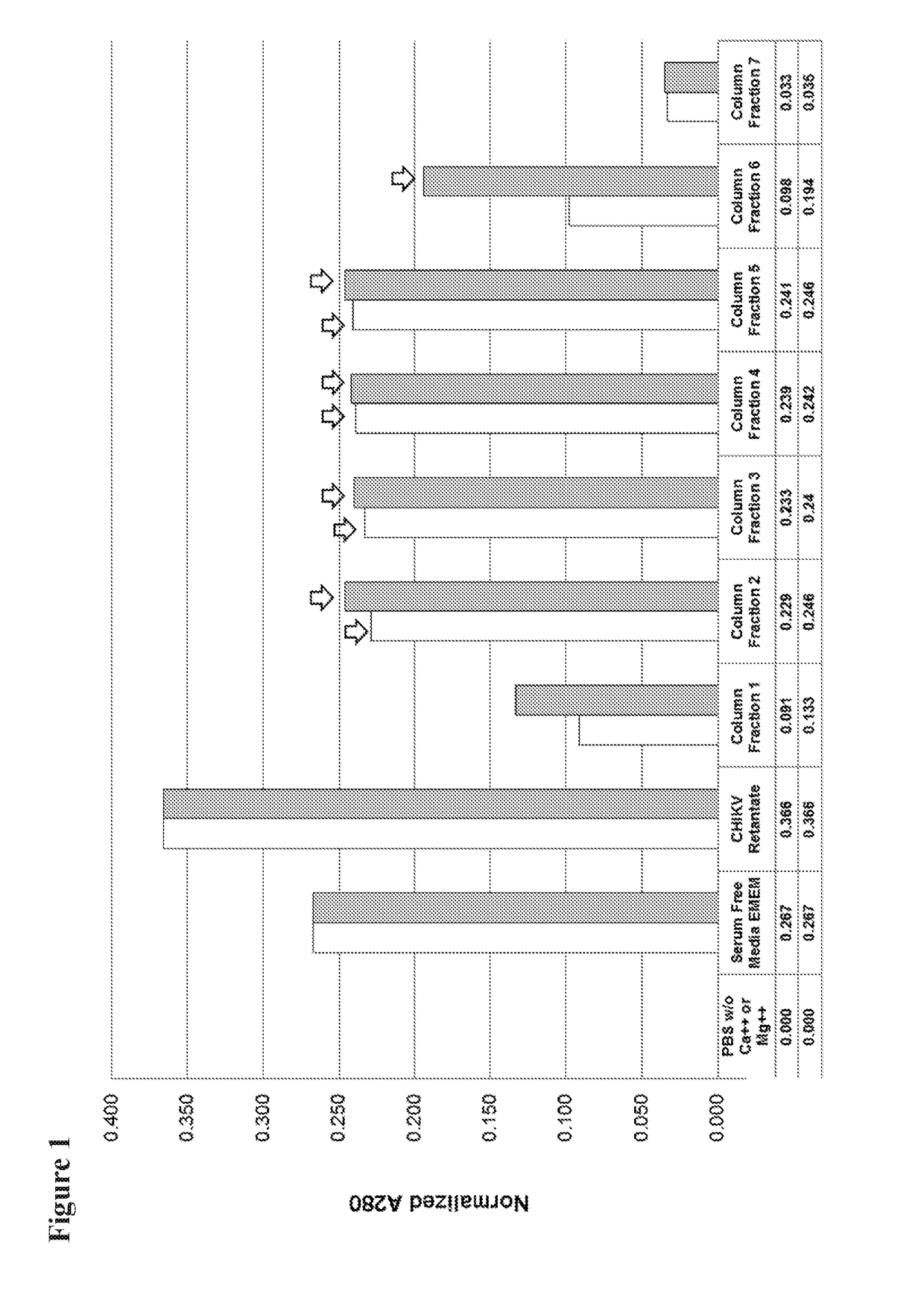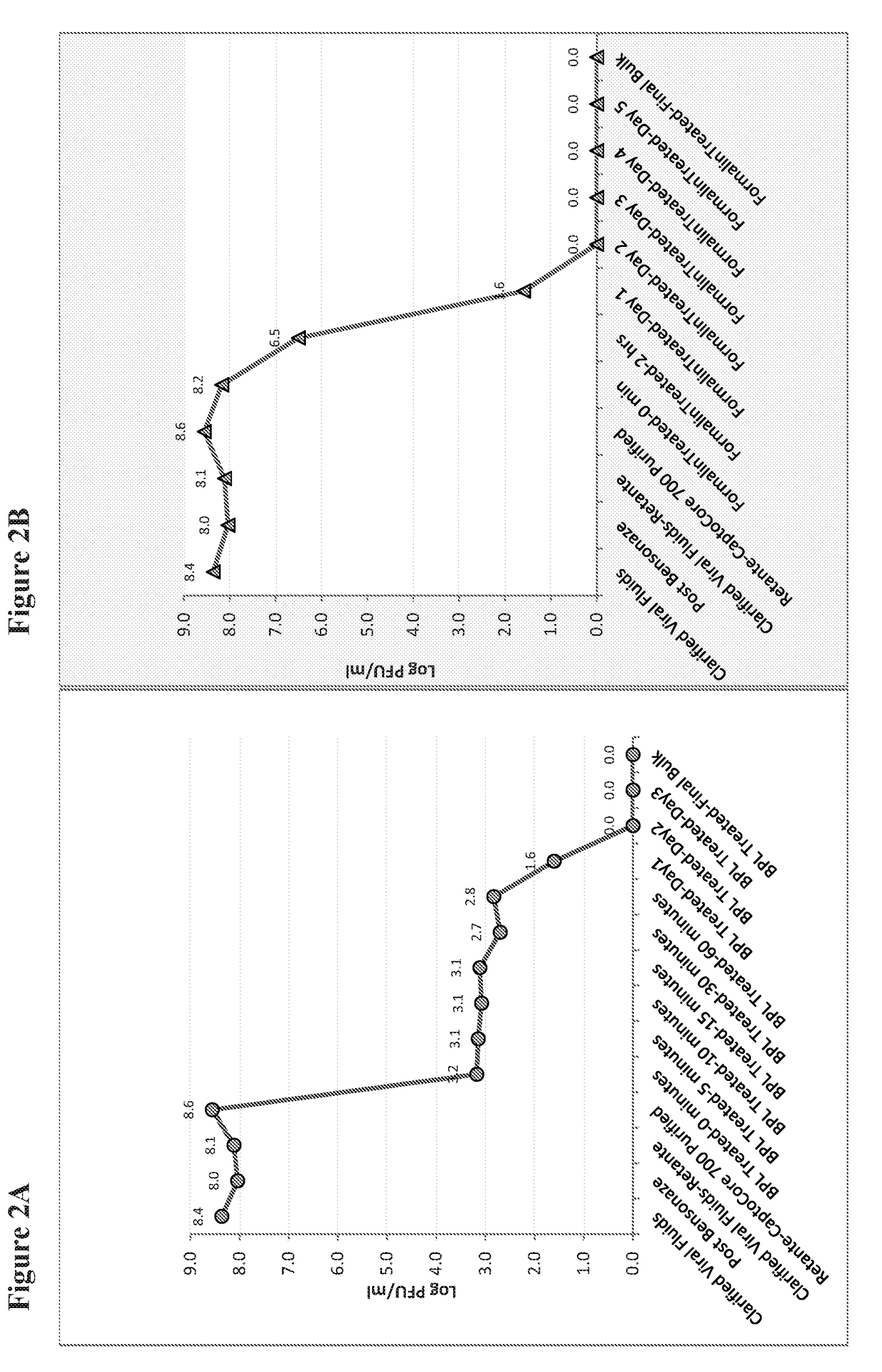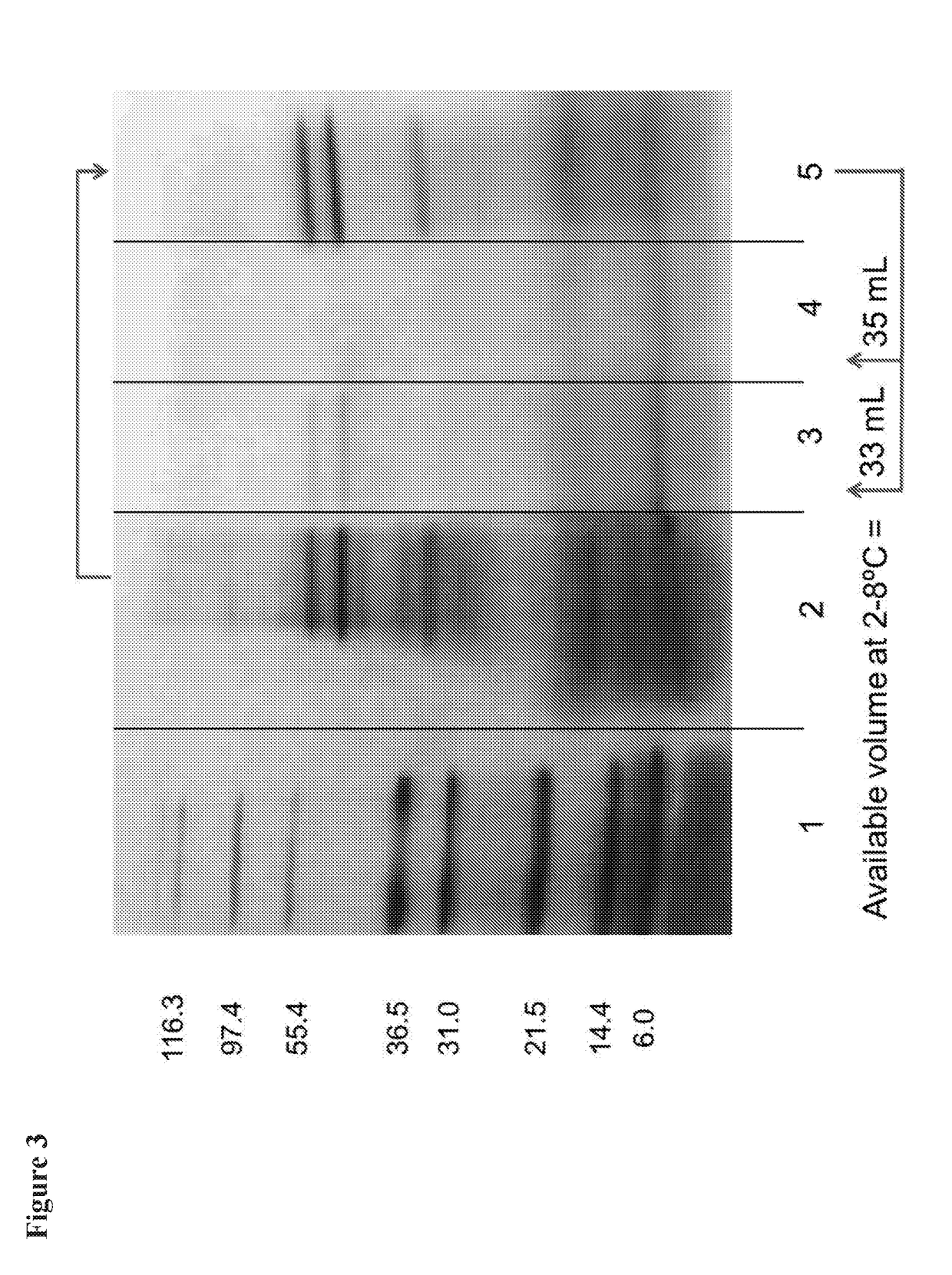Inactivated vaccine for chikungunya virus
a chikungunya virus, inactivated technology, applied in the field of vaccines, can solve the problems of weak immunogenicity, intrinsic concerns with side effects, gastrointestinal, eye, neurologic, cardiac complications, etc., to break the cycle of viral transmission, improve immunogenicity, and reduce the effect of side effects
- Summary
- Abstract
- Description
- Claims
- Application Information
AI Technical Summary
Benefits of technology
Problems solved by technology
Method used
Image
Examples
example 1
nd Derivation of CHIKV Strain 181 / Clone 25
[0052]Chikungunya virus (CHIKV) was originally isolated from a human patient in Thailand (1962) and adapted to African green monkey kidney cells by passage (Harrison, V. R., et al, J Immunol., 1971; 107:643-47). At the eleventh passage the CHIKV was inoculated into human MRC-5 and passaged 18 times with plaque selection of clone 25 (Levitt, N. H., et al, Vaccine, 1986; 4(3):157-621986). At passage 31 a master seed was manufactured, followed by passage 32 (working seed), and a vaccine lot at passage 33. Human clinical testing demonstrated immunogenicity and attenuation of the CHIKV 181 / clone 25 strain (Edelman, R., et al, Am J Trop Med Hyg., 2000; 62(6):681-85). For development of a new generation, purified-inactivated vaccine (PIV) CHIKV 181 / clone 25 was passaged in Vero cell. Table 1 lists titers of Vero passage-2 CHIKV. Yields of approximately 9 log10 of CHIKV after two days in culture indicated that replication was sufficient for vaccine ...
example 2
ion of CHIKV Using CaptoCore Chromatography
[0053]CHIKV supernatant fluids from Vero cell cultures were harvested at day 2 and clarified by low-speed centrifugation and filtration using a 0.45 micron filter. The clarified fluids were treated with 50,000 units / mL of benzonase for 2 hr at room temperature then concentrated by ultrafiltration using a 300 kD ultrafilter. Concentrated CHIKV was loaded onto a Captocore 700 chromatography column. Fractions were identified for collection by monitoring OD280 readings. Column fractions 2-5 as shown in FIG. 1 were collected and pooled. FIG. 2 shows results from polyacrylamide electrophoresis of pre- and post-purification CHIKV after denaturation with SDS.
example 3
ion of CHIKV Using Formalin and Beta Propiolactone (BPL)
[0054]Pooled column fractions were inactivated using 0.05% formalin or beta propiolactone (BPL) (from 0.025-1%) at 22° C. Samples of inactivated CHIKV were removed at intervals during inactivation as shown in FIGS. 2A and 2B. After 2 days, no live CHIKV could be detected by viral plaque assay. Additional days of inactivation (1-3 days) continued to ensure complete virus inactivation. Residual formalin in the final vaccine pool was neutralized by the addition of sodium metabisulfite.
PUM
| Property | Measurement | Unit |
|---|---|---|
| temperature | aaaaa | aaaaa |
| chemical inactivating | aaaaa | aaaaa |
| antibody titer | aaaaa | aaaaa |
Abstract
Description
Claims
Application Information
 Login to View More
Login to View More - R&D
- Intellectual Property
- Life Sciences
- Materials
- Tech Scout
- Unparalleled Data Quality
- Higher Quality Content
- 60% Fewer Hallucinations
Browse by: Latest US Patents, China's latest patents, Technical Efficacy Thesaurus, Application Domain, Technology Topic, Popular Technical Reports.
© 2025 PatSnap. All rights reserved.Legal|Privacy policy|Modern Slavery Act Transparency Statement|Sitemap|About US| Contact US: help@patsnap.com



